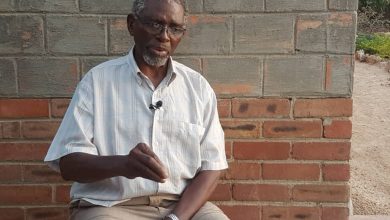Diarrhoea outbreak: Council accuses Tshabalala residents of feigning sickness to receive handouts

The Bulawayo City Council (BCC) has claimed that the Diarrhoea cases recorded recently in Tshabalala extension suburb could be overstated after some residents feigned sickness in order to benefit from handouts distributed by some non-governmental organisations.
The city was hit by a fourth diarrhoea outbreak in as many months with 1 093 cases and one death recorded in Tshabalala.
The local authority is struggling to provide potable water to residents and was forced to implement a 72-hour water-shedding regime.
Residents in Tshabalala said when water was restored, it was smelly and dirty and claimed it could have been contaminated by a burst sewer pipe.
Out of the 1 093 cases, nine of those were recorded on Wednesday while active cases stand at 1075.
However, Dr Sibanda believes the veracity of diarrhoea statistics can be contested, as the numbers were motivated by residents who pretended to be sick from diarrhoea in order to benefit from a developmental partner assisting the affected.
“As we speak there are 1 093 cases. Of those, nine were recorded yesterday including one death. I must hasten to add there was an effect modifier in terms of the number of diarrhoea cases that were recorded at Tshabalala Clinic. Some of our partners were distributing non-food items such as buckets, bars of soaps, sanitisers whose requirement or qualification to receive such was a card from the clinic showing they were treated for diarrhoea,” he said while giving an update of the diarrhoea situation during a Bulawayo Water and Sewerage Services Improvement Project Water and Service Delivery Indaba held at the Large City Hall Thursday.
“After that the numbers shot up at the clinic and the nurses came down to say, ‘Ok we would want stool samples from all patients that have diarrhoea here’ and the numbers came down crashing because people were coming literally to get the card so as to go and get non food items.”
Dr Sibanda argued, therefore, the diarrhoea cases may not be as high.
“We fear that the total number of cases there may not be as high as recorded because some of them were kind of spurious figures – people wanting to get non-food items but the report objectively says, ‘tell the partners to stop distributing the non-food items because they were causing this increase in the number of cases of diarrhoea so we said that affect our figures,’” he said.
The health official noted that 71 stool samples were sent to both internal and external laboratories and four came back positive for Shigella Flexneri.
“This bacteria tends to cause a lot of fever, abdominal pain, diarrhoea with and without vomiting and people becoming extremely ill,” he said.
Dr Sibanda added 15 water samples were collected and five came back unsatisfactory, meaning there were some bacteria in one form or the other.
“Remember finding dirty water does not imply positivity. It only becomes positive when I capture the Shigella in people’s stools and in the water. But at the moment, it’s only four people whose stool had Shigella,” he said.
From the five unsatisfactory water samples, Escherichia coli (abbreviated as E. coli) was identified.
“What was borne in the water and what was borne in people, tends to be different. The E. coli was born in the water and Shigella was borne from people. We suspect that yes, there is a relationship but then can’t say with certainty if this caused that because there’s a temporal sequence to say when was the water drunk, how much was drunk, before we can actually prove positivity or causality so we still have a lot of work,” Dr Sibanda said.
Dr Sibanda repeated some diarrhoea were a result of spurious cases.
“Unfortunately diarrhoea is like a headache or a backache. There’s no way of proving otherwise. It’s very difficult, you have to believe them when they say they have diarrhoea, you ask a few questions around diarrhoea, they answer, ‘yes, yes’ because they would have coached each other while sitting in the tent outside. You ask how many times they have gone to the toilet. Only when I say, ‘may I have the stool samples’ that’s when they start chickening out because you now want to prove there’s diarrhoea so it became problem,” he said.
“These people were then classified as diarrhoea cases as reported because in epidemiology we look at case definition, where anyone who presents or reports is classified as diarrhoea for purposes of that then an ID is created. So we did have those cases.”
“It’s not like Covid 19 where a case definition was thrown out of the window, the only thing valued is an antigen or PCR tests. Your story of coughing does not make you a Covid-19 case until PCR says so. But most of these conditions, be it typhoid, cholera, even Ebola itself rely on a case definition. If it walks, talks, looks like it, therefore it is. That’s how it worked unfortunately for diarrhoea we use case definition and because of that we have included unnecessary things.”






